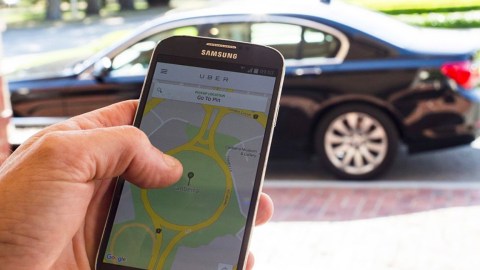Could Automatic Tipping Innovate the Uber Economy?

Uber is a giant among the pack of companies leading the gig economy. The company is rapidly expanding throughout U.S. cities — it recently opened up shop in six new Maryland locations for example. Uber is also expanding internationally, including a recent announcement that it will invest $250 million to widen its operations in the Middle East. Uber’s rapid expansion means that it has come into the public eye in a big way over a few short years.
Given all the attention and popularity that Uber and similar companies enjoy, it might be true that they can play a role in innovating the economy. But what if their current policies and practices aren’t actually allowing them to do that?
Some argue that Uber’s actual impact on employment is fairly small. For example, half of all Uber drivers work 10 hours or less a week, often not even adding up to their most significant portion of income for the month.
Part of what makes Uber so prominent are the differing opinions about the impact that it and similar apps have on the economy as a whole. Some argue that Uber’s actual impact on employment is fairly small. For example, half of all Uber drivers work 10 hours or less a week, often not even adding up to their most significant portion of income for the month.
Others think that digital economy companies could revolutionize the market and provide a new source of good jobs moving forward. They call on gig economy companies to launch initiatives to improve the quality of life and wages for the workers using their platforms. Uber and several similar large companies were not among the first to sign onto the pledge.
You can count author and entrepreneur Andrew Keen as one of Uber’s major doubters:
Back in October, Uber drivers went on strike against the 28 percent company fee on what they earn, as well as the company’s policy to eliminate tipping in ride transactions. Perhaps the more innovative approach to ride exchanges would actually be to reduce fees and incorporate a standard, fair tip into the cost of an Uber ride. Some movers and shakers in the restaurant industry are already laying down a pathway for changing tipping culture by transitioning tipping from a decision-making process to a default.
So while it might be true that the gig economy has a lot to offer the world when it comes to the 21st century economy, it is critical to remember that popularity and healthy economic innovation aren’t necessarily the same thing. The true innovation might lie in setting work standards that lift up those who rely on piecing together part-time work to get by.
Photo: Martin Ollman/Getty Images
—
Stefani is a writer and urban planner based in Oakland, CA. She holds a master’s in City and Regional Planning from UC Berkeley and a bachelor’s in Human Biology from Stanford University. In her free time she is often found reading diverse literature, writing stories, or enjoying the outdoors. Follow her on Twitter: @stefanicox





